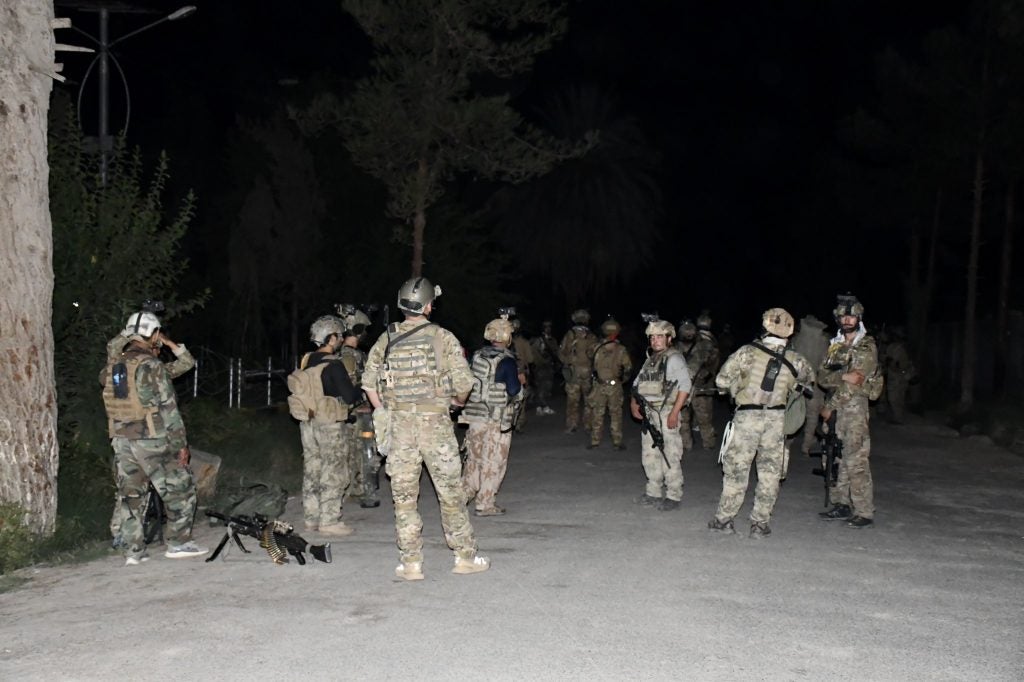US Seeks “Joint International Response” To Taliban Advances
The State Department announced on 9 August, that Special Representative for Afghanistan Reconciliation Ambassador Zalmay Khalilzad had travelled to Qatar on the 8 August.
In a press note, the State Department said that Ambassador Khalilzad was in Doha for three days of meetings with representatives from countries in the region and multilateral organizations to find a “joint international response” to recent advances by the Taliban. The representatives Ambassador Khalilzad will be meeting with are said to be pressing for a “reduction of violence” and ceasefire, as well as a commitment not to recognize a “government imposed by force”.
The State Department’s claims that the Ambassador will “press the Taliban to stop their military offensive and to negotiate a political settlement, which is the only path to stability and development in Afghanistan” ring especially hollow in the light of Taliban advances over the weekend. The Taliban is now claimed to have taken control of six provincial capitals over four days, with the capitals of Nimroz, Samangan, Kunduz, Sar-i-Pul, and Takhar (Taloqan) provinces now said to be no longer under Afghan government control.
Five of the six provincial capitals said to be captured are in the north of the country, home to many of Kabul’s officials, as well as traditional strongholds of the Northern Alliance that fought against the Taliban prior to 2001. Meanwhile, reports on Tuesday claim that the Taliban have now taken a seventh provincial capital, with most of Farah city, capital of Farah Province, now said to be under Taliban control as Afghan forces fight to beat them back.
While officials from NATO countries that have deployed in Afghanistan have long expressed concern over the deteriorating situation in the country following the announcement of the “retrograde” of US forces and the NATO mission, US allies’ appetite for an international response other than strongly worded press statements appears to be mixed. German Defense Minister Annegret Kramp-Karrenbauer expressed scepticism of German calls for a new Bundeswehr intervention in Afghanistan on Twitter, asking “With what goal, with what strategy, with which partners” would such an intervention be carried out.
Meanwhile, British Defence Secretary Ben Wallace revealed to the Daily Mail that the United Kingdom had sought to form a coalition of countries willing to remain in Afghanistan after discovering that it could not do so unilaterally without US support, but representatives of other NATO countries Wallace spoke to were not interested or said that it was unlikely to receive support from their home parliaments. Wallace said that he was “saddened” by the “rotten deal”, saying that it had undone a lot of the progress achieved in Afghanistan over the past 20 years. He said that while “we’ll probably be back in ten or 20 years”, the damage was done, exposing the short-term strategies of those who backed the deal.
In the meantime, the United States has begun ramping up airstrikes on Taliban targets, with targeting now shifting to targeting Taliban personnel on the attack instead of destroying equipment captured by the Taliban. B-52s, B-1s and F/A-18s have joined AC-130s and MQ-9s in conducting airstrikes, with a defense official admitting to Voice of America that recent Taliban gains have also expanded their military power, thanks to freed prisoners and captured equipment.

